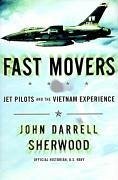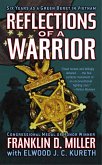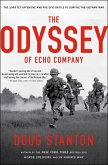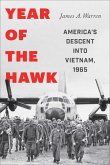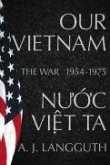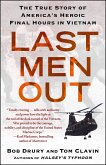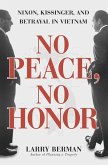Ironically, Vietnam, though one of our least popular wars, produced one of the most effective groups of warriors our nation has ever seen -- men of dedication, professionalism, and courage. In Fast Movers, official navy historian John Sherwood offers an authoritative social history of the air war, focused around fourteen of these aviators -- from legends like Robin Olds, Steve Ritchie, and John Nichols to lesser-known but equally heroic fighters like Roger Lerseth and Ted Sienecki.
Sherwood draws on nearly 300 interviews to tell stories of great pilots and great planes in the words of the men themselves. Fliers recall jets such as McDonnell Douglas's famous F-4 Phantom, "a Corvette with wings"; the F-05 Thunderchief, the workhorse of the war; the F-8 Crusader, the last of the gun fighters; and the block-nosed but revolutionary A-6 Intruder with its fully computerized attack systems, terrain mapping radar, and digital all-weather navigation system.
Ultimately, though, it was the men who mattered. Sherwood shows us the brash confidence of famous iconoclast Robin Olds, who does not hide his thrill of the hunt -- and the kill. Roger Sheets looked like Don Knotts but prepped his "Vulture Flight" of Marine A-6s with the simple, unequivocal line, "Gentlemen, let's go out and kill something." But Sherwood lets us know that it wasn't all glory, that pilots suffered fear just like other soldiers. Ed Rasimus later admitted he thought that an assignment to Thailand was "like getting diagnosed with terminal cancer: everyone is hoping the cure will come before you die."
There were things worse than death, too. Fast Movers offers fascinating portraits -- based on Sherwood's interviews and just-declassified naval archives -- of Vietnam's POWs. Pilots lucky enough to suffer only broken bones and burns from the violence of 1960s-era Martin-Baker ejection seats struggled to find honorable ways to negotiate half-decade-long periods in captivity. Passive resistance, like Commander Jeremiah Denton's famous blinking of TORTURE in Morse Code, was sometimes successful, often brutally reprised. Escape was impossible.
Those who avoided shootdown learned to live with other frustrations. Most wanted to "go downtown" (bomb Hanoi) but were foiled by their civilian superiors, who dictated the numbers and types of aircraft that could be used in a given strike, the kinds of ordnance that could be levied against a target, and even the flight paths that could be flown. Against all odds, the pilots spawned a culture of success in the midst of failure and frustration. Fast Movers captures a hidden and crucial story of America's least successful war.
Dieser Download kann aus rechtlichen Gründen nur mit Rechnungsadresse in A, B, BG, CY, CZ, D, DK, EW, E, FIN, F, GR, HR, H, I, LT, L, LR, M, NL, PL, P, R, S, SLO, SK ausgeliefert werden.

